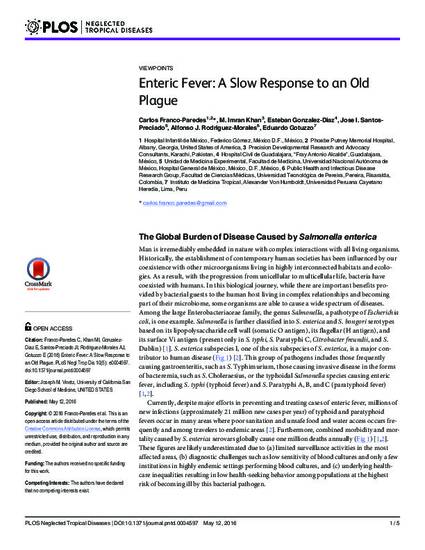
Man is irremediably embedded in nature with complex interactions with all living organisms. Historically, the establishment of contemporary human societies has been influenced by our coexistence with other microorganisms living in highly interconnected habitats and ecologies. As a result, with the progression from unicellular to multicellular life, bacteria have coexisted with humans. In this biological journey, while there are important benefits provided by bacterial guests to the human host living in complex relationships and becoming part of their microbiome, some organisms are able to cause a wide spectrum of diseases. Among the large Enterobacteriaceae family, the genus Salmonella, a pathotype of Escherichia coli, is one example. Salmonella is further classified into S. enterica and S. bongori serotypes based on its lipopolysaccharide cell wall (somatic O antigen), its flagellar (H antigen), and its surface Vi antigen (present only in S. typhi, S. Paratyphi C, Citrobacter freundii, and S. Dublin) [1]. S. enterica subspecies I, one of the six subspecies of S. enterica, is a major contributor to human disease (Fig 1) [2]. This group of pathogens includes those frequently causing gastroenteritis, such as S. Typhimurium, those causing invasive disease in the forms of bacteremia, such as S. Choleraesius, or the typhoidal Salmonella species causing enteric fever, including S. typhi (typhoid fever) and S. Paratyphi A, B, and C (paratyphoid fever) [1,2].
Available at: http://works.bepress.com/mohammadimran_khan/10/
